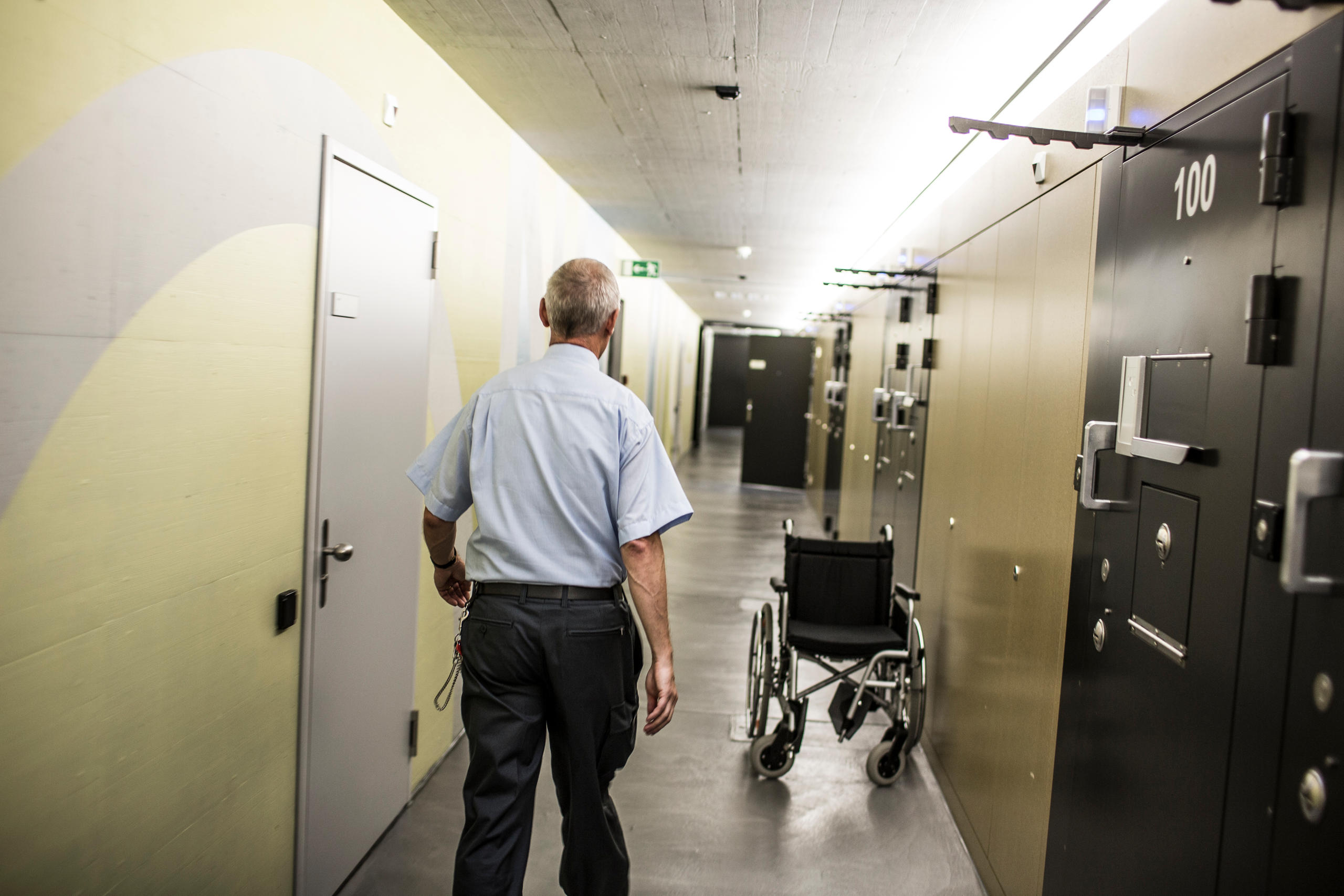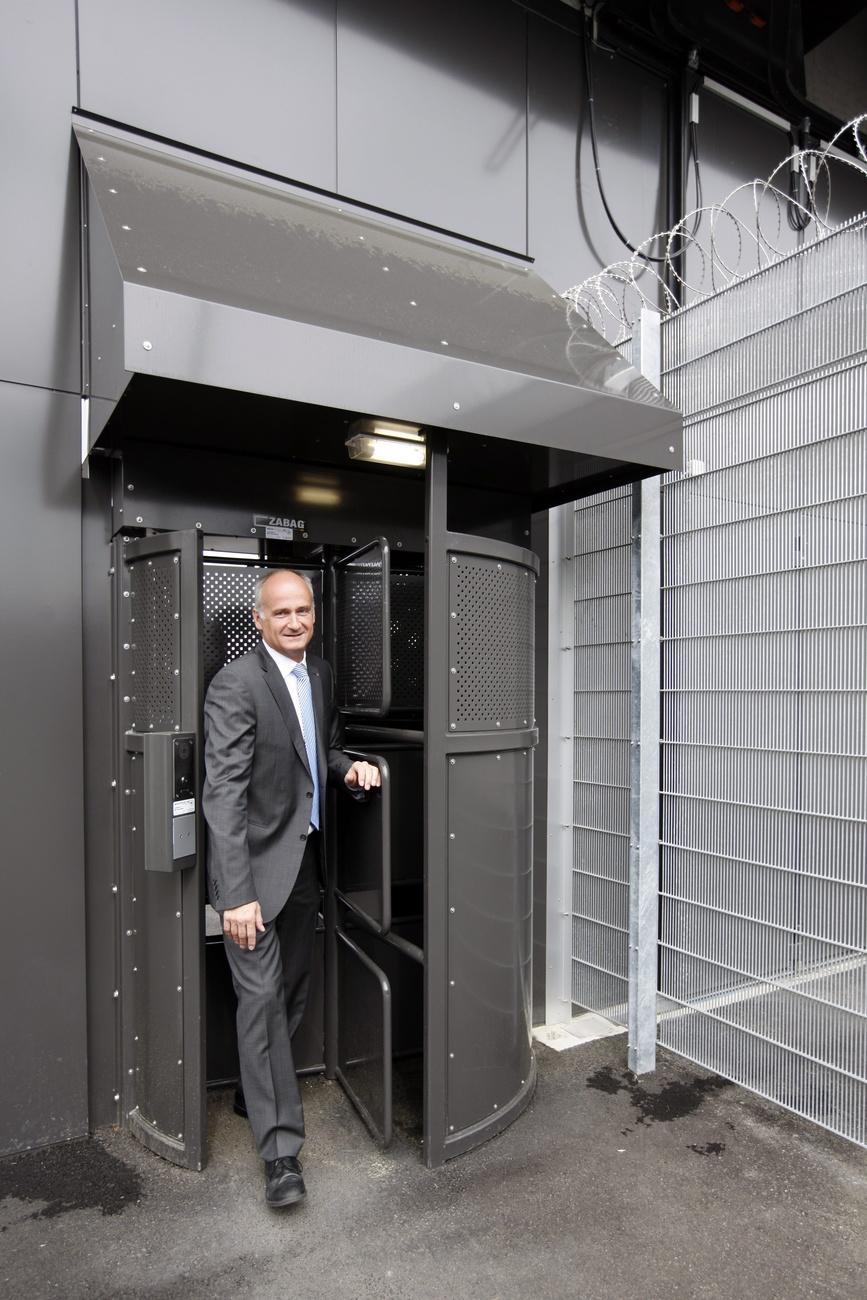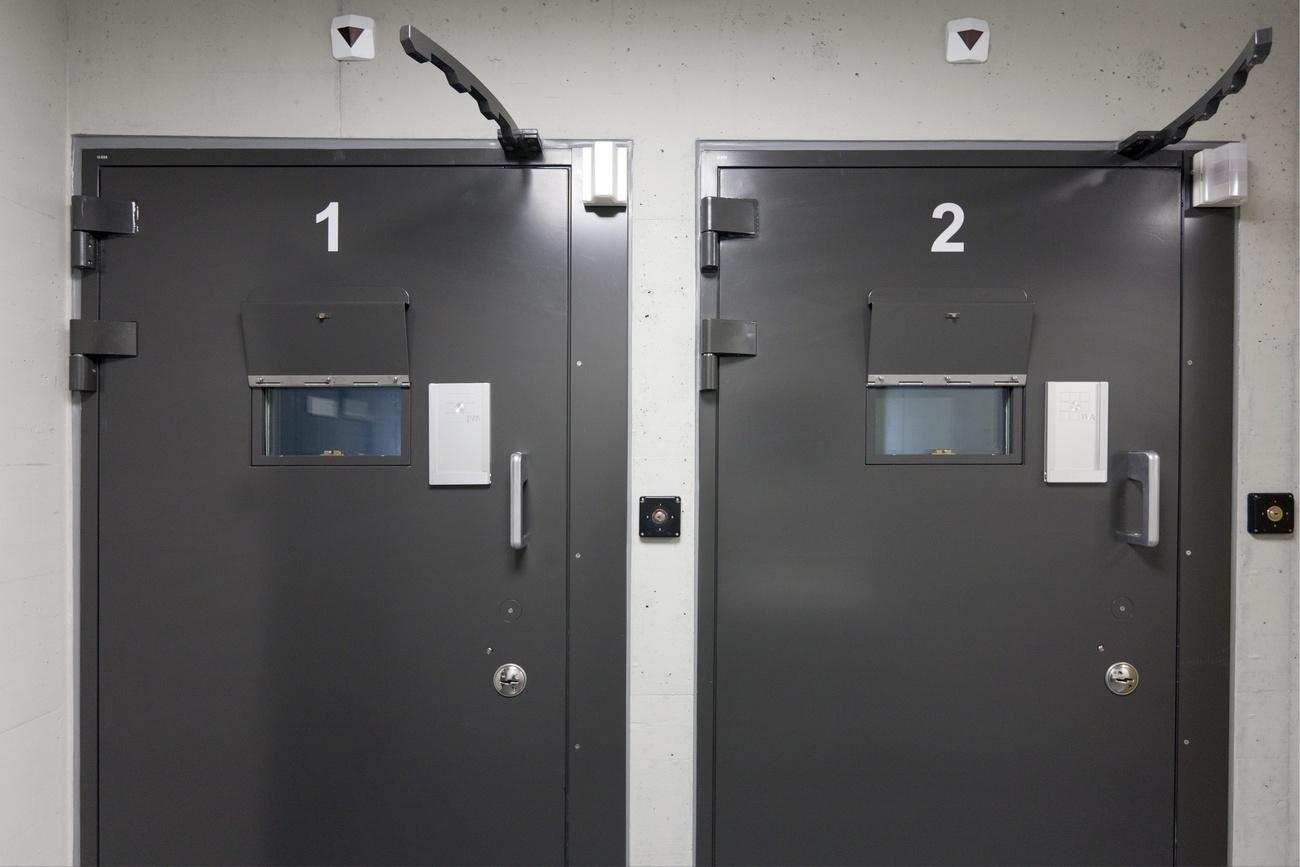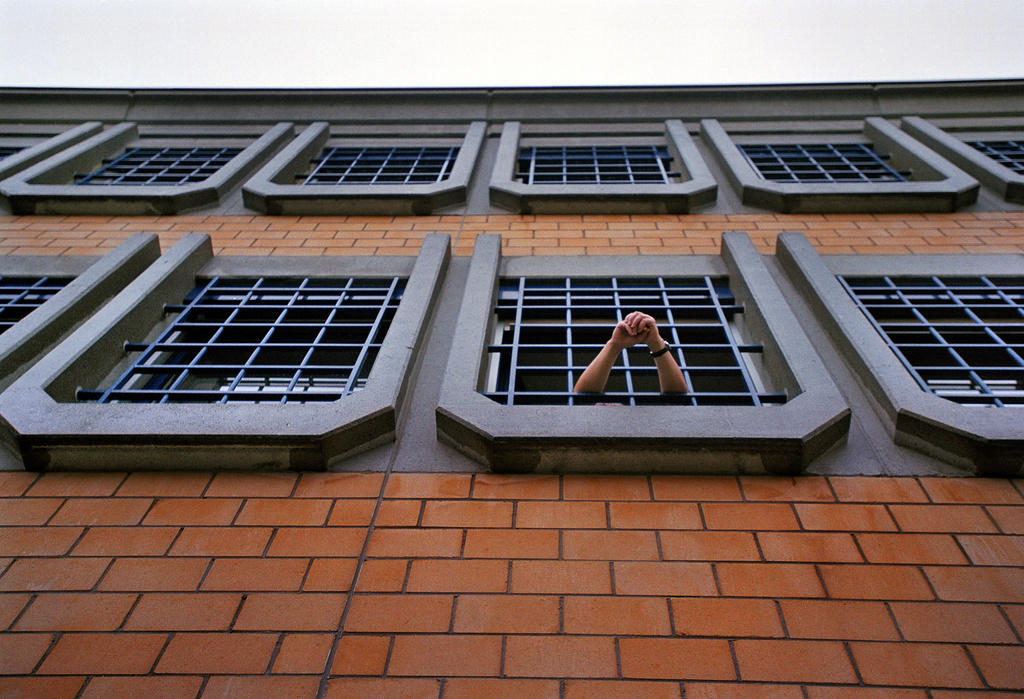Nursing home behind prison bars

Wheelchairs, articulated beds, grab rails for showers and toilets: the infrastructure of the “60-plus” unit at the high-security prison in Lenzburg, north-western Switzerland, reveals the presence of older people behind bars.
“At first, we asked several elderly prisoners if they were ready to move from a ‘normal’ prison to a ‘special’ one. Some said they were still too young to go into a ‘retirement home’. Others, meanwhile, were happy to have more age-appropriate living conditions.”
Marcel Ruf, the director of Lenzburg prison, and Erich Hotz, head of the “60-plus” unit, explain to swissinfo.ch how the first such facility set up in Switzerland meets the specific needs of elderly prisoners.
Opened in 2011, the “60-plus” unit comprises 12 places initially designed for people with mental disorders. They are, therefore, not fully adapted to older prisoners, the two officials explain in writing.

Humane treatment
Today, the “60-plus” unit is still seen as a sort of laboratory for the future development of prisons for older inmates. “It is a first step towards a humane treatment of the ageing and death of older prisoners,” says Ueli Hostettler, director of the study “End of life in prison: legal context, institutions and actors.”
The obligation to work is no longer a priority in this unit: half a day for healthy inmates, while those who are no longer able to work are exempt. Everyone receives an “old-age pension”.
To ensure that everyone has a daily programme and to reduce the risk of isolation, the unit offers courses where inmates can further their knowledge, learn new skills or develop their creativity.
Multiple challenges
But there are still gaps. According to Ruf and Hotz, what is lacking in particular is a care section able to look after those with health problems. At the moment, an external nursing service (Spitex)External link performs these tasks, but this is not enough.
Another challenge facing the “60-plus” unit is training specialised staff to handle prisoners with different needs. “We also need to think more about how to organise suitable work activities for these inmates,” the two officials say.
Other aspects to be taken into consideration are the last stages of life, final wishes, palliative care, dementia and the services of Exit or Dignitas. These are basic questions that have not yet been regulated in the Swiss prison system.

More
Dying in dignity behind bars
(Translated from Italian by Julia Bassam)

In compliance with the JTI standards
More: SWI swissinfo.ch certified by the Journalism Trust Initiative












You can find an overview of ongoing debates with our journalists here . Please join us!
If you want to start a conversation about a topic raised in this article or want to report factual errors, email us at english@swissinfo.ch.